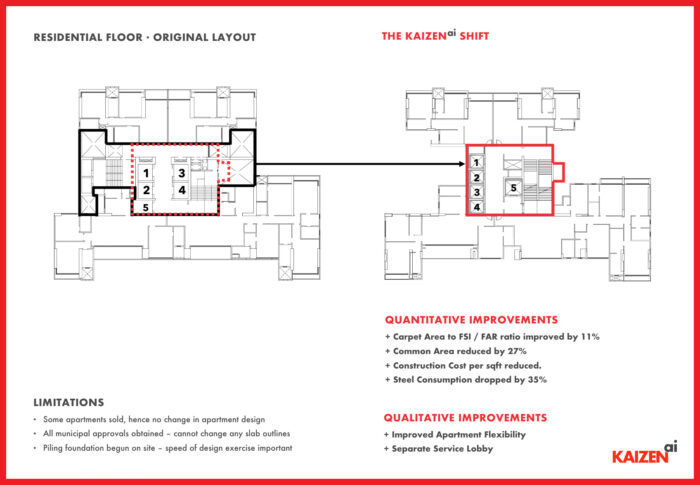ChatGPT has emerged as the poster child for AI 2.0 — the next generation of machine learning – and as a go-to for residential real estate agents looking to speed their workflows.
But residential brokers have just begun to tap ChatGPT for their mundane daily duties — site-specific research, writing listings or filing leasing paperwork. And even tech-first brokerages such as Compass and eXp largely tout their tools as a time saver.
Meanwhile, proptech firms leveraging AI are largely concerned with accelerating processes. Silverwork Solutions automates the repetitive tasks that fall on mortgage brokers. While Redfin’s tech more readily connects site users with on-point property recommendations.
If deployed at scale, AI can also help tech-savvy developers revolutionize the way they find, plan and build projects. Some of the most ambitious products hold the potential to optimize entire cities through redesign.
In many ways, AI-assisted development tools got to the table before brokerage ones did, and with bigger guns.
In the past five years, architects, former developers and techies have collaborated to build programs that boost returns, cut carbon consumption and crack open a wider world of buildable sites.
AI = ROI
Jay Shah, director at Mumbai, India’s Access Architects, recognized the application of AI in building design as a graduate student in Columbia University’s architecture program.
Fast forward 15 years and the architect has built out a program that can optimize building plans in 28 days or less, cutting through traditional timelines to boost profits and reduce carbon emissions.
The tech is Kaizen ai, which draws its name from the Japanese business strategy that promises continuous improvement.
Ajmera Treon, a two-building high-rise in Downtown Mumbai, is the firm’s go-to case study.
Developer Ajmera Realty had already laid the foundation and sold a number of apartments when it tapped Kaizen to tighten up its plans.
“That meant we couldn’t change the apartment designs,” said Shah.
Within those constraints, Kaizen spat out drawings that reconfigured the building’s support columns, firefighting shafts and elevators, and slimmed down the elevator bay. The revamped renderings would cut the building’s common area by 27 percent and steel used by 35 percent, according to Shah.
Less common space means lower electric and heating bills for the owner, and a smaller carbon footprint.

For developers, though, the biggest benefit of the design was increased profit.
Kaizen also shaved down the parking lot to four floors while adding 62 spots. Those extra levels were tapped for residential use, boosting the project’s saleable area by 13 percent.
In buildings where the firm could revamp apartment layouts, Shah said it has bumped saleable area by 15 percent.
“The impact is much larger,” Shah said.
So far, Kaizen has worked exclusively with Asia-based developers. Still, the firm says partnerships with prominent North American players, including projects with Brookfield and Marriott, are in the works.
“It’s still very early days, but we found that work in the U.S. would be similar to anywhere else in the world,” Shah said. “There are some places where we can add a tremendous amount of value.”
Zoning made easy
Here in the States, Deepblocks speeds and simplifies piecing together a development site.
Working with a team at California’s Singularity University, founder Olivia Ramos designed a technology that provides developers with the zoning parameters of more than 100 cities nationwide.
A developer tapping the program can cut through a city’s patchwork of zoning codes. Miami Dade County, for example, has 36 incorporated cities, each with its own rules.
Ramos, who worked in development before launching Deepblocks, detailed the lengthy process of identifying a site without the tech. A developer would wait for a broker to bring a deal, then consult an architect on what a site could hold. That turnaround could take two weeks. The firm would then need to verify a site with an analyst, followed by a contractor, which might take eight months.
Deepblocks allows for an assessment in seconds. A developer can see whether a property is primed for commercial or residential use, the total buildable area allowed, market rates for area sales or rents, nearby highways and schools.
The firm also produces 3D project models that developers can use to lay out building plans.
“We’re the only AI company that can scan the entire city and say, ‘Out of 10,000 properties, these are five that meet a very specific development criteria,’” Ramos said.
The tech also reduces costs. An architect’s feasibility study on one project can run from a few thousand dollars to $20,000. Deepblocks allows developers to assess thousands of sites, a volume that would otherwise be too costly.
The company has partnered with Brazilian developer GBX Capital and New York-based Camden Securities on projects.
It also nabbed the approval of Rockefeller Group. Alex Kozak, now at Greystar, who worked on projects such as Rockefeller’s residential tower 16 Dupont Street, said she used the AI to identify more than 20 potential development sites in one day.
“This has made direct sourcing infinitely easier and saved days, if not weeks,” a testimonial from Kozak on Deepblocks’ site reads.
Adapt or die
Kaizen and Deepblocks are among a slew of firms that entice developers to lean into more tech-centric workflows.
Archistar allows users to quickly assess residential development sites to produce the biggest return on investment. Leverton inputs data into architectural models in an attempt to eradicate human error. Hypar can help accelerate the modeling process. And Giraffe can model entire cities: The firm deployed its tech to design a more connected, transit-based Sydney, Australia, that adapts to the surrounding landscape.
AI development tools are still in their nascent stage. But experts in the space say developers who ignore the coming tide of technology risk falling behind.
“AI is not going away, so companies that embrace the technology will be leaders in the industry and those who do not will be laggards,” Nikki Greenberg, founder of Real Estate of the Future, told Urban Land.
Read more


